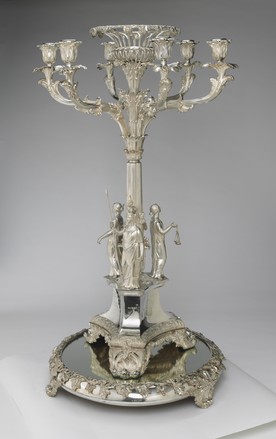To His Honor Francis
Forbes Esquire,
Chief Justice of New
South Wales.
& etc.
Sir
Having
heard with regret, the announcement of your early Departure from our Shores, -
We
whose names are hereunto subscribed, beg on the part of the Public, - in Public
Meeting duly assembled, to approach you with the respectful expression of our
Sentiments, both as to your Public and Private Character, during the long
Period you have resided amongst us.
To
you, Sir, the first Chief Justice that was ever appointed to preside in our
Courts, was delegated on your arrival, the arduous duty of organizing those
Courts so as to render them the means of dispensing Justice to the Inhabitants
of this Colony in conformity as far as then lay in your power with the Constitutional
Rights of our Fellow Subjects in the Mother Country;- This was the object
submitted to your earliest care at a time, when although Chief Justice of the
Colony you had no Brother Judges to aid you in your arduous undertaking, and so
well did you perform this duty, that you at once raised the Judgment Seat in
the estimation of the Colonists to that state of Respect from which it has
never on any occasion since been Suffered to descend, - An object of admiration
for the Ability with which its difficult and anxious duties have been so
efficiently performed, - And of veneration for, and implicit confidence in, the
undeviating Purity of its Decisions.
As
a Legislator and a Member of the Colonial Government, your character is
entitled no less to our unqualified regard, - and more particularly your
uncompromising maintenance of the Constitutional Rights of the Colonists as far
as their Rights have been hitherto extended to this Colony, - Nothing but the
highest moral Triumph and Integrity combined with that Genius and Learning for
which you are so eminently distinguished, could have overcome the Opposition
and Difficulties which you have had to encounter.
In
Private Life, you have displayed a warm and active Benevolence of Disposition,
and an Urbanity of Manners, which had rendered access to you a Pleasure on all
occasions where the Welfare and Happiness of your Fellow Citizens have been in
any manner concerned.
We
Hail you therefore Sir, in your several capacities, - As an Ornament and Honor
to the Bench over which you have so long presided;- As an enlightened and Firm
Protector of our Rights, and of the Interests of this Colony, during those
several Administrations of its Government of which you Sir, have formed so
indispensable and efficient a Member – And As Our Friend.
Taking
our Leave of you with every wish for your safe arrival in our Mother Country,
and for the speedy restoration of your Health, and for your eventual return to
end your days amongst us;- We beg to request your acceptance of a Service of Plate
to be purchased and presented to you on your arrival in England, bearing on it
an inscription which is intended to Perpetuate our Sense of Your distinguished
Merit, and also to Commemorate Our Regard.
Sydney
16th April 1836
We
have the Honor to subscribe Ourselves Sir, Your Obedient Humble Servants.
J.
Blaxland
G
Newman
For and on behalf of the Public meeting and by
their vote



 Back to list
Back to list